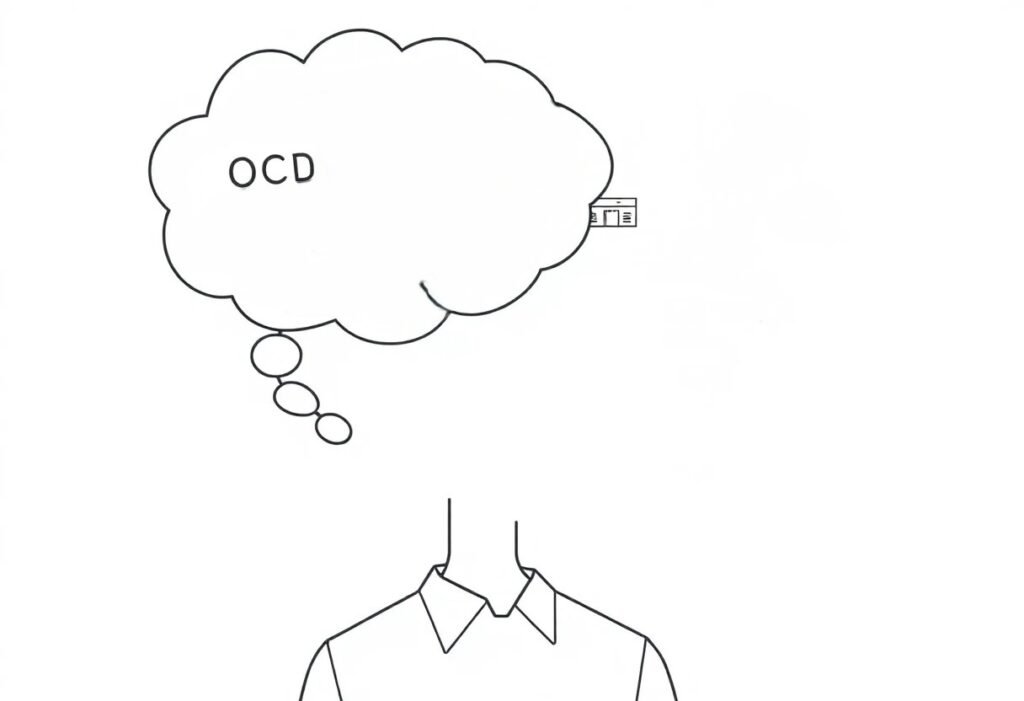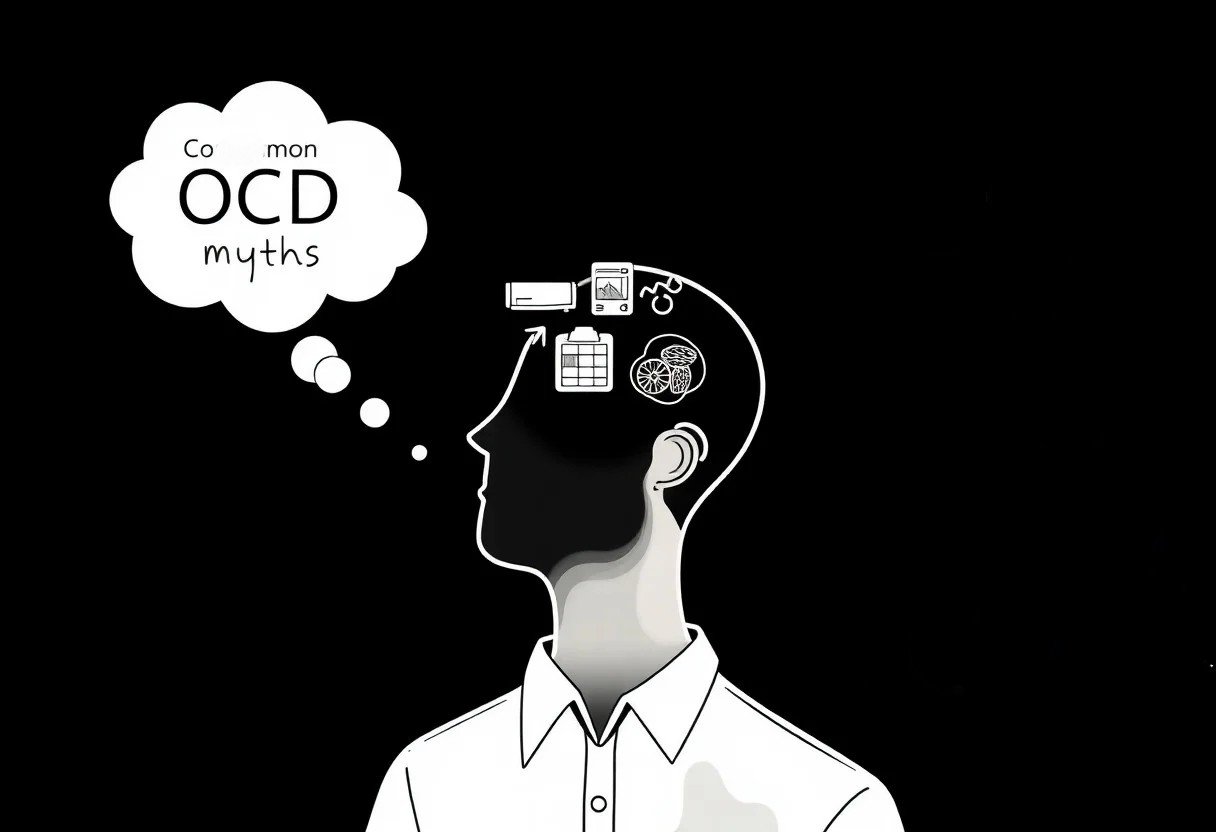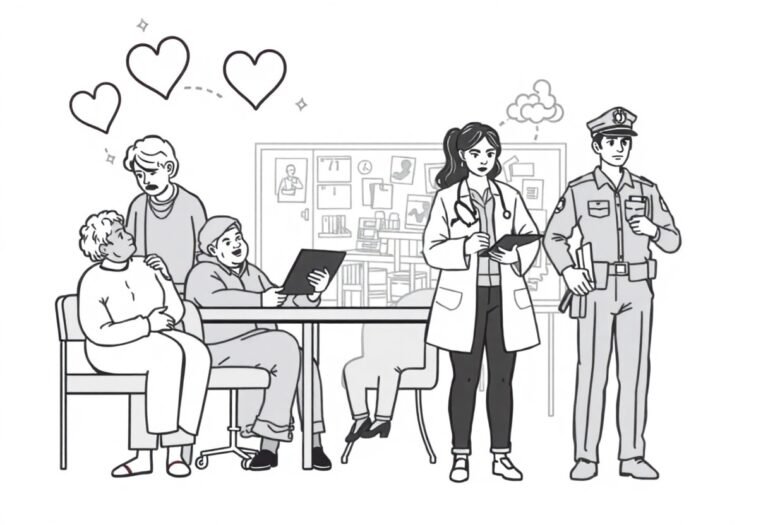What OCD Isn’t – Breaking the Myths
Breaking the OCD Myths: Most people hold misconceptions about what Obsessive-Compulsive Disorder (OCD) truly entails, often reducing it to a simple preference for cleanliness or order. This can trivialise your experiences and hinder understanding of a complex mental health condition. In this post, you will explore the significant myths surrounding OCD, equipping yourself with accurate knowledge that can foster empathy for yourself and others struggling with it. By discarding these myths, you can gain a deeper insight into the realities of OCD and promote a more informed conversation about mental health issues.
Key Takeaways:
- OCD is not simply being excessively neat or organised; it is a serious mental health condition involving intrusive thoughts and compulsive behaviours.
- It is a common misconception that people with OCD always act on their compulsions; many individuals experience these urges without acting on them.
- OCD is not a quirky personality trait; it affects daily life and can significantly impair functioning and quality of life.
- It is not just a childhood disorder; OCD can develop at any age, and symptoms can manifest differently in adults compared to children.
- OCD does not always involve rituals or compulsions; some individuals may only experience obsessive thoughts without visible behaviours.
The Daily Life of an OCD Sufferer: Myth vs. Reality
The stark contrast between myth and reality can often mar your daily life as someone with OCD. Many believe that individuals with OCD are merely organised or tidy, but the truth is far more complex. Living with OCD means confronting incessant, intrusive thoughts that can disrupt your daily activities, leading to overwhelming anxiety and a desperate need to relieve that discomfort through compulsions.
Misconceptions About the ‘Obsessive’ Component
It’s a common misconception that the ‘obsessive’ aspect of OCD is simply about making things perfect or excessively meticulous. In reality, your obsessions often revolve around distressing and unwanted thoughts that create a significant emotional burden. These thoughts can be related to fears of harm, contamination, or other irrational anxieties that can haunt you at any moment.
Dispelling the Notion of ‘Compulsive’ Actions as Simple Rituals
Compulsive actions in OCD are often dismissed as harmless or trivial rituals, yet this perspective undermines the genuine struggle you face. Such behaviours are not merely habits; they spring from a profound need to alleviate the anxiety caused by your obsessive thoughts. Engaging in these actions can provide you with temporary relief, but ironically, they often reinforce the cycle of OCD, leading to more intrusive thoughts and compulsions.
For instance, you might find yourself repeatedly checking locks or washing your hands, compelled to perform these actions until you feel ‘just right’. These compulsions can consume hours of your day and deplete your emotional and physical energy. Each time you engage in these rituals, you may feel an immediate sense of relief, but the underlying anxiety tends to return, creating an exhausting loop that’s difficult to break. Understanding this distinction is crucial, as it emphasises the need for compassion and proper treatment rather than critique or misunderstanding.
OCD and Personality: The Misinterpretations
Misunderstanding OCD often leads to unfair assumptions about personality traits. Many believe that individuals with OCD possess certain characteristics, such as being overly neat or perfectionistic, attributing their behaviour to personality flaws. However, OCD goes far beyond personality attributes; it is a debilitating disorder that can disrupt daily functioning, driven by uncontrollable thoughts and compulsions rather than mere quirks or organisational habits.
Is OCD an Extreme Form of Neatness or Organisational Skills?
OCD is frequently mistaken for an extreme form of neatness or exceptional organisational skills. While some people with OCD may exhibit these traits, it is not a hallmark of the disorder. The reality is that OCD is characterised by persistent, intrusive thoughts and compulsions, which can sometimes lead to cleanliness-related rituals, but this is only one aspect of a complex mental health condition.
The Link Between Perfectionism and Obsessive-Compulsive Behaviours
Perfectionism often intertwines with obsessive-compulsive behaviours, leading to the misconception that OCD is merely about striving for flawlessness. Individuals who experience OCD may feel an overwhelming need to achieve perfection in various aspects of life, driven by the fear that failing to do so could result in dire consequences. This belief can result in a cycle of anxiety and compulsive actions aimed at preventing mistakes or perceived threats.
Many individuals with OCD experience a heightened sense of responsibility for preventing any negative outcome, often linked to perfectionistic tendencies. This can manifest in excessive checking, ordering, or redoing tasks until they meet an imagined ideal. Studies indicate that around 30% of those with OCD also report significant perfectionistic traits, highlighting the intricate relationship between the two. Consequently, it’s crucial to differentiate between healthy striving for excellence and the debilitating impact of perfectionism on mental health, which can exacerbate the challenges faced by those with OCD.

The Spectrum of OCD: What It Looks Like
OCD manifests differently for each individual, making it necessary to recognise that this condition exists on a broad spectrum. From mild compulsions that only mildly disrupt your daily life to severe cases that can render you incapacitated, understanding this variation helps to paint a more accurate picture. Your experience may encompass a range of obsessive thoughts, from the fear of contamination to the need for orderliness, illustrating that there is no single way OCD presents itself.
Beyond the Common Tropes: Serious Impacts of OCD
The impacts of OCD extend far beyond the clichés of hand-washing and excessive organisation. You may find your social life severely restricted due to overwhelming anxiety about your compulsions or intrusive thoughts. This condition can lead to intense shame and isolation, forcing you to miss work, events, or even daily activities. In many cases, it can also contribute to debilitating depression and heightened anxiety disorders, further complicating your overall mental health.
Understanding the Nuances: Different Presentations of OCD
OCD encompasses various presentations that extend beyond the commonly assumed traits. You might experience intrusive thoughts related to violent urges, catastrophising, or even moral doubts, which can be distressing and confusing. Some individuals may engage in compulsions that remain hidden, such as mental rituals or avoidance behaviours, making it less visible to others while still affecting their day-to-day life. Actual diagnoses can vary significantly, with each case demanding individualised understanding and treatment.
Understanding the nuances of OCD requires recognising the various forms it can take and how it can manifest in everyday behaviours. For instance, some people, like you, may develop compulsions around specific themes such as harm, religion, or symmetry, while others may focus on taboo thoughts or extreme fears. Each distinct presentation comes with its unique challenges; thus, awareness of these variations is vital. You are not alone in your struggles, and navigating through different manifestations of OCD can lead to a more straightforward path toward effective management and recovery.
Treatment Perspectives: What Works and What Doesn’t
Effective treatment for OCD can vary significantly from person to person. Cognitive Behavioural Therapy (CBT), particularly Exposure and Response Prevention (ERP), has proven highly effective for many individuals. Medications such as SSRIs can help alleviate symptoms for some individuals, but they may not work for everyone. Understanding what works and what doesn’t for you is essential for managing your condition effectively.
Challenging the Myths Surrounding Medication and Therapy
Misconceptions often cloud the understanding of medication and therapy for OCD. Many believe that medications are a ‘quick fix’, but in reality, finding the right medication can take time and careful monitoring. Similarly, therapy requires a commitment to the process; instant change is not always possible. Engaging with healthcare professionals who understand these complexities can provide a more realistic view of your treatment options.
The Role of Support Systems in Recovery
A strong support system can significantly bolster your journey towards managing OCD. Family members, friends, and support groups provide important emotional backing and can help you navigate the challenges. They can encourage you during tough times and celebrate your successes, however small, which can reinforce your motivation and commitment to treatment.
A supportive environment can make a tremendous difference in your recovery journey. Having someone to talk to about your experiences can lessen the burden, and understanding friends and family members may learn about OCD, enabling them to offer better support. Participating in a support group not only fosters connection with others facing similar challenges but also provides opportunities to share coping strategies and experiences. This sense of community can be vital, reminding you that you are not alone in your journey.
The Cultural Influence: How Society Shapes Our Understanding
Society plays a pivotal role in shaping your understanding of OCD, often through distorted perceptions and stereotypes. Cultural narratives can lead to misconceptions that trivialise or sensationalise the disorder, overshadowing the real struggles faced by those who live with it. Your understanding is thus influenced not just by personal experience but also by the collective societal narrative that can either contribute to stigma or promote empathy and awareness.
Media Representations: The Good, The Bad, and The Misleading
Media portrayals of OCD can significantly impact your perception of the condition, showcasing both positive and negative aspects. While some films and programmes offer nuanced insights into OCD, others perpetuate unrealistic and harmful stereotypes. These misleading representations often emphasise the ‘quirky’ aspects of OCD, detaching the viewer from the reality of the debilitating nature of the disorder and hindering true understanding and empathy.
The Stigma of OCD: Impacts on Awareness and Diagnosis
Stigma surrounding OCD can severely limit both awareness and accurate diagnosis. The tendency to label individuals with the condition as merely ‘organised’ or ‘neurotic’ can lead to underreporting of symptoms and a reluctance to seek treatment. This reduces the ability of healthcare professionals to recognise the severity of OCD in patients who might suffer in silence, prolonging their distress and complicating recovery.
By perpetuating myths and misunderstandings, stigma plays a detrimental role in your journey towards recognising and addressing OCD. Those affected may feel ashamed of their symptoms or reluctant to disclose their experiences, further isolating themselves in their struggles. This isolation can prevent timely intervention and support, which are imperative for effective treatment. Moreover, the lack of awareness surrounding the true nature of OCD exacerbates the misdiagnosis of the condition, resulting in inappropriate treatment approaches that could hinder rather than help recovery. Thus, confronting and dismantling stigma is vital for enhancing both societal understanding and individual experiences related to OCD.
Final Words
Following this, it is crucial for you to understand that OCD is often misconstrued and trivialised, leading to misconceptions about its true nature. It isn’t merely about being tidy or having quirky habits; rather, it is a complex mental health condition that can severely impact your daily life. By breaking these myths, you empower yourself with knowledge, enabling a more compassionate and informed perspective towards yourself and others affected by OCD. Acknowledging the realities of this disorder can foster understanding and support, which are vital for anyone navigating its challenges.
FAQ
Q: What is a common misconception about OCD?
A: A common misconception is that Obsessive-Compulsive Disorder (OCD) refers solely to the need for cleanliness or organisation. While some individuals with OCD may exhibit these compulsions, the disorder can manifest in a variety of ways, including intrusive thoughts and repetitive behaviours that are not necessarily linked to cleanliness.
Q: Is OCD just about being overly neat?
A: No, OCD is not limited to being overly neat or organised. It includes a range of symptoms where individuals may experience unwanted, intrusive thoughts (obsessions) that lead to compulsions, which are behaviours performed to alleviate anxiety. For instance, some may have compulsions related to checking, counting, or specific rituals that hold no logical connection to the obsession.
Q: Does having OCD mean someone is ‘quirky’ or ‘perfectionist’?
A: Being quirky or a perfectionist does not equate to having OCD. While individuals with OCD may engage in specific routines, their behaviours are driven by distressing obsessions and are performed to reduce anxiety, not simply to achieve perfection or quirkiness. The compulsions are often time-consuming and interfere with daily life.
Q: Can you overcome OCD by just trying hard enough?
A: Overcoming OCD typically requires more than just willpower or determination. It often involves professional treatment strategies such as Cognitive Behavioural Therapy (CBT), specifically Exposure and Response Prevention (ERP), and sometimes medication. It is vital for individuals to seek proper help rather than relying on sheer effort alone.
Q: Is OCD a rare condition?
A: No, OCD is not a rare condition. It affects a significant number of individuals across various demographics. Studies indicate that approximately 1 in 40 adults and 1 in 100 children in the UK may experience OCD at some point in their lives, highlighting the need for awareness, understanding, and appropriate treatment options.







